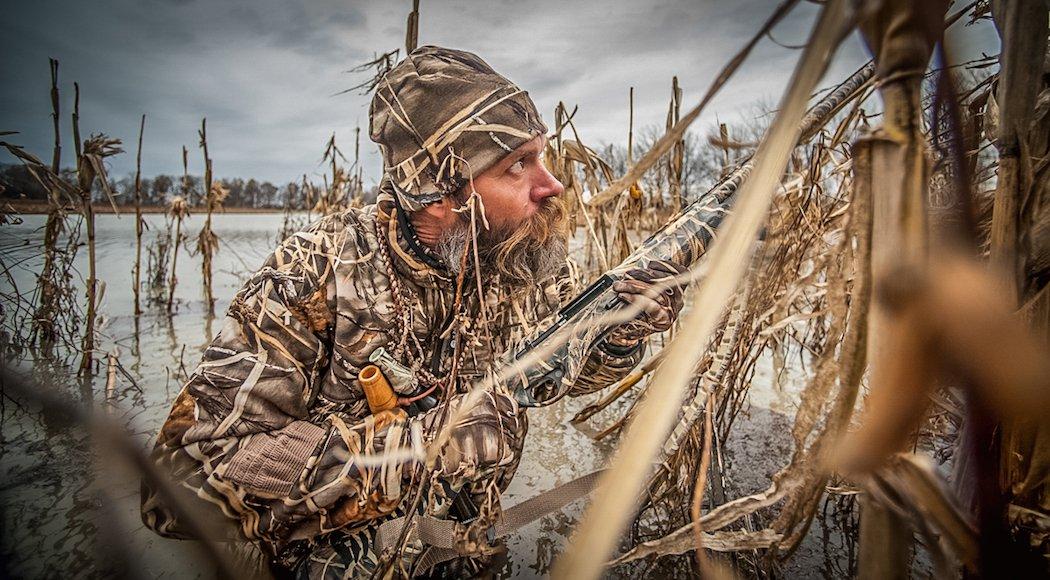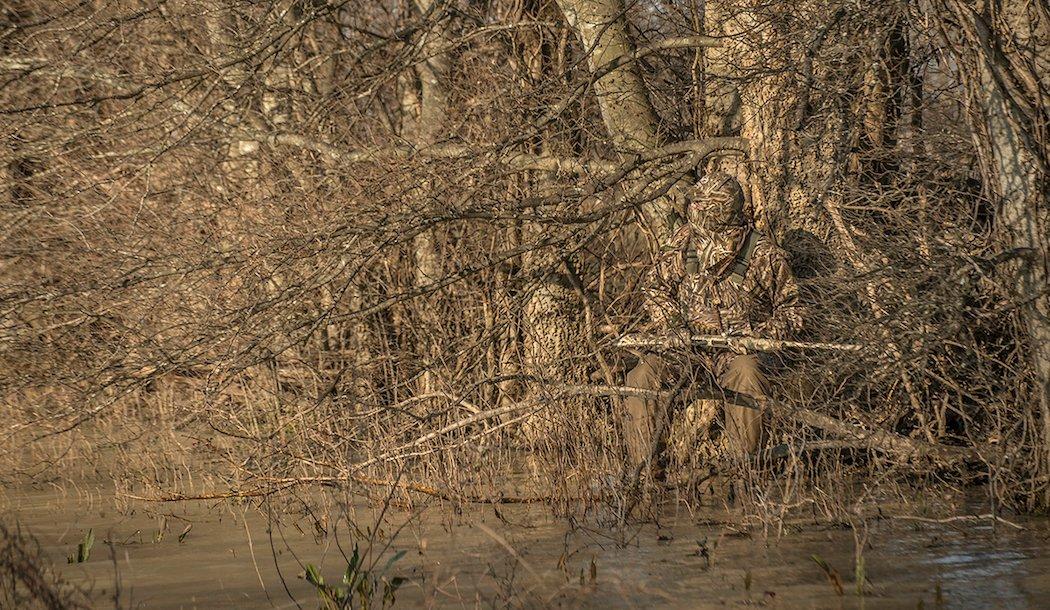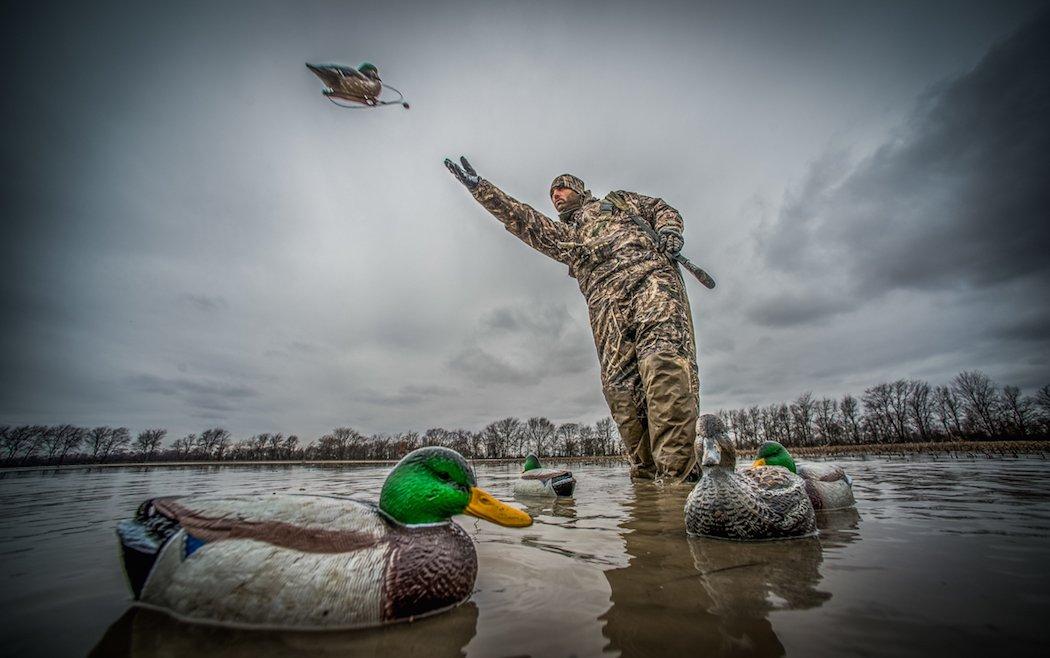10 Tactics For Hunting Pressured Ducks
We caught up with two big-time duck hunters to get their thoughts on a range of duck-fooling challenges. You might be surprised at what they had to say.
1. TEST THE BLIND
Ever hear of matching the hatch in fly-fishing? It's the same deal in blind building—sort of: It's hard to relate a blind-building discussion when there's such a vast array of locations and setups guys use around the country, Rod Haydel of Haydel's Game Calls emphasizes. Down in the South, the hunting I know best, it's critical to match the terrain we're hunting in.
Haydel then asks his buddies to check out his work. I use a little test when I'm taking somebody along to a place where I've built a blind. When we pull up, I'll ask them if they can find the blind. If they can't, I've done it right.
By all means, you need to keep things as natural as they can be, Haydel stresses. Don't use pine tree branches if they're aren't any around. It sounds funny, but you need to think about that along with keeping that profile to a minimum.
2. HUNT EARLIER, QUIT SOONER
Another thing to consider is not hunting too late in the day. Guys are staying out in the fields longer and longer, Haydel insists. Sure, it's our passion, but sometimes it's better to stop one duck shy of a limit rather than hunting another couple hours to get it. Don't get in the routine of being too focused on the limit. It might hurt the quality of your hunting in the long run.
3. TIGHTEN YOUR SPREAD
Rod Haydel suggests moving decoys closer and making your pocket right next to the blind using a hook-type set. I try to put several duck species in close, especially those ducks I'm specifically hunting and imitating with my calling. Ducks can then reference the decoys tight to the blind when I call. Also, if ducks are lighting to the right side of the blind, I can move the decoys to the left side, and vice versa.
4. NO-CALL DUCKS

5. SHUT UP
Sean Mann of Sean Mann Outdoors has the best advice of all if ducks flare to your calling: Don't call! Rod Haydel seconds the notion: If ducks don't like my calling, I then try to call as little as possible, or as little as I can get by with.
6. MUCH TOO MUCH
Rod Haydel believes that nowadays, a lot of hunters are probably guilty of overcalling a little. Often this happens in a big hunting party, he says. All the callers seem to go to the feeding chuckle at the same time. When you have six guys doing that, it sounds like machine-gun fire. It sounds unnatural. I'm a strong believer in single quacks. If I'm the sole caller, I'll throw quacks in there. This can add to the sound without muddying the water too much.
7. CALLING ALL WOODIES
Wood ducks are widespread, and they migrate early with the teal. They're also so crazy that you won't necessarily call them as you will mallards, but it can be done, Rod Haydel reminds. Sometimes hunters will jumpshoot them on creeks, or they hunt near the roost, which only lasts a few days at best. If there's a lot of activity you might run birds right out of there. If a lot of season is left, you don't want to do that, of course.

They also whine. I start with the wheat call, then add a whine, which is softer, and definitely good at close range (under 150 yards). They'll make that sound after landing on the water as if to say, Where y'all at? Sometimes they'll swim in, and I'll jump up to get them in the air if they do that. A few decoys will help draw them in too.
8. ROOSTING WOODIES
Hunting ducks in heavy cover can be difficult. What you should do is hunt near the roost but not in that exact area. Scout to find their flight pattern, Haydel said, as they take certain travel routes between roosting and feeding areas. Avoid the actual roosts to keep the birds using them consistently as resting areas. Then you can try to call them in.
9. TOUGH-SELL DUCKS
In Louisiana, I'm down into the flyway, Haydel said. And ducks have seen and heard everything by the time they get here. I try to catch their attention, to get them on a line, and to keep them there. Rather than throwing in feeding or greeting calls, the way we traditionally would, I'll make a single quack to keep them in line, pausing between quacks, slowly calling, quack (pause) quack (pause) quack (pause). If they break, I'll hit them with a comeback call as soon as they get off line, and fix that problem immediately if I can.
10. PRESSURED DUCKS
What if your spots won't hold birds? Down in our area [Louisiana], Haydel said, after pressure heats up, ducks move elsewhere sometimes. Guys who are having trouble with their usual spots will tell me they find ducks in big numbers in locations they've never seen them before. They've moved due to hunting pressure.
So, what's Rod Haydel do? What you need to do is find an out-of-the-way place without hunting pressure. A small cattle pond might work. It might not have huge numbers of birds on it, but if you line up several of these areas—which might not stand the pressure two days in a row, but will be good for one—that could help. Hunt one locale, switch, then go somewhere else. Some of my most memorable hunts around here were in places so small I could throw a rock across them.







